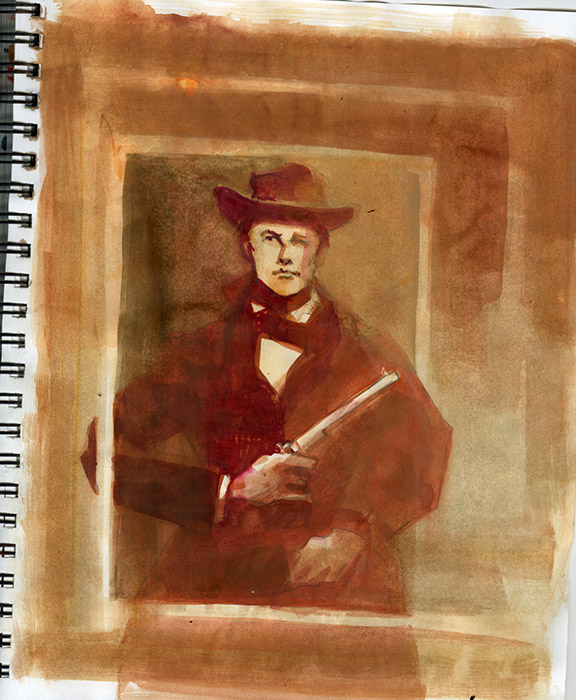June 22, 2023
Last May I had the privilege of visiting a whole slew of Jesse James history sights in the great state of Missouri (Missour-ah, as they pronounce it). Thanks to the knowledge and generosity of my guide, Mark Lee Gardner, we hit the high spots, from the Jesse James Farm to the Jesse James Home in Saint Joe, and many battlefields and graveyards in between.
Besides the rich history I discovered (I never knew the Santa Fe Trail started in Franklin, Missouri!) we encountered great people and great food, from BBQ in Jeff City (what they call the state capital Jefferson City) to Boudreaux's Louisiana Seafood and Steaks, catty-ccorner from the Buchanan County Courthouse where Bob and Charley Ford pleaded guilty to Jesse's murder. All of these great sites are available for anyone who loves history like we do. In fact, we are planning a return visit and tour next year to celebrate the publishing of my next book, The Illustrated Life & Times of Jesse James. Stay tuned, we're going to make this a fun road trip for and all the readers of True West magazine.
Mark Lee Gardner's Itinerary
Fly into Kansas City. I'm assuming you've already been to the Jesse James Home in St. Joe, but if you haven't, that's obviously a must-see. Even if you have seen it, I'm guessing you'll be planning to go back. Anyway, it's 37 miles north of KCI. Also while in St. Joe, don't skip the Buchanan County Courthouse, built in 1873. The judge's bench in Division 6 is supposed to be the bench where Bob and Charley pleaded guilty to Jesse's murder. You'll have to ask to see it. A very cool historic building. If it's around lunchtime, Boudreaux's Louisiana Seafood and Steaks is catty-corner to the courthouse. The restaurant has a wonderful antique backbar that came from Chadron, Nebraska. Also check out the 1859 Missouri Valley Trust Building, just two and a half blocks away on Felix Street. If you can get inside, you'll see a perfectly preserved 19th-century bank interior. Amazing. The movie Paper Moon includes a scene at this building.
Before leaving St. Joe, visit the Heaton Bowman Smith Sidenfaden Funeral Home. (Yes, I said funeral home.) They have on display the original undertaker's basket that was used to carry Jesse's body to the Sidenfaden establishment and also Sidenfaden's original 1882 ledger that contains the entry for the outlaw.
The Jesse James Birthplace Museum is 27 miles northeast of KCI. Allow yourself at least half a day here, because not only will you want to go through the house, but you'll want to spend some time in their Milton F. Perry Research Library. The research files in the file cabinets are what you want to concentrate on. Anything pertaining to Jesse, Frank, the James family, the James-Younger gang, known robberies, etc., has a file. Extremely useful. Beth can also show you some things that aren't on display. For example, the Jesse ambrotype and other fascinating artifacts.
Daily Whip Out: "Dapper Mr. Howard"
After your done at the James farm, drive three miles east to Watkins Woolen Mill State Park and Historic Site. The Watkins family were neighbors of the Jameses, and their correspondence often mentions the doings of the boys. The home and mill date to before the Civil War and would have been well known to Jesse and Frank. Be sure to take the mill tour, as well as the house tour. The mill contains nearly all of its original machinery. The Watkins home featured in several scenes in Ride With The Devil, which you definitely want to watch before your trip. Watch the Criterion Collection edition.
The Jesse James Bank Museum is in nearby Liberty. Jesse wasn't involved in this robbery, but it marks the beginning of Missouri's bank and train robbery era.
Forty minutes southeast of the James Farm is the Battle of Lexington State Historic Site, which you should definitely visit. But on your way, stop in Richmond. Bob and Charley Ford are buried in the Richmond Cemetery, just a few blocks west of the courthouse square. The homestead of the Ford family was within site of this cemetery to the west. About six or so blocks north of the courthouse square is the Pioneer Cemetery. This is the final resting place of Bloody Bill Anderson (in the corner). By the way, there's a great bronze of Alexander Doniphan, the legendary hero of Sacramento, in the courthouse square. Now, head on to Lexington. Frank James participated in this fight, known as the Battle of the Hemp Bales. The small visitor center does a good job of interpreting the conditions in Missouri prior to the outbreak of the war. Next take time to see the historic buildings in town, including the antebellum courthouse, which has a cannonball embedded in one of the columns. A wounded Jesse recuperated in a Lexington hotel after his surrender, and bushwhacker and James boys pal Arch Clements was killed in Lexington shortly after the war. If it's lunchtime, hit the old Maid-Rite drive-in, a local institution. I grab a Maid-Rite sandwich there at least once a year, a real treat.
You'll of course want to visit one of the James-Younger gang robbery sites, and there's none better than Rocky Cut, an hour and twenty minutes southeast of Lexington. The robbery site is just east of the little town of Otterville. There's a historical marker in BrownField Roadside Park, on old Highway 50. Leave your vehicle in the park's parking lot and walk west downhill until you can cut through the narrow slip of woods on your left, separating you from the railroad tracks. When you get to the tracks, look east and you'll get a good view of the cut through the limestone bluff. The opening chapter of my Shot All To Hell chronicles this famous robbery.
Make time after or before visiting Rocky Cut to stop in Sedalia, Missouri, which is 15 miles west of Rocky Cut. Lots of meal options there (home of the Missouri State Fair!). Also, be sure and check out the restored Katy Depot, 600 E. Third Street. A wonderful building and restoration.
If you can squeeze it in before heading back to KCI, visit the 1859 Jail Museum in Independence. You can see the original jail cell where Frank James was held awaiting trial.
—Mark Lee Gardner
And Now We Have to Say Goodby
to Cormac One More Time
"Why would someone want to read a novel whose graphic acts of brutality make Hieronymous Bosch's paintings look like a children's coloring book? A simple answer is Mister McCarthy's writing. Without question he was one of the best stylists of the 20th Century—stripping punctuation to its studs, embracing diction archaic and mellifluous, apt to reduce sentences to the fewest possible words but unafraid to let them gallop along at full tilt when they needed to. A dying man lets out 'a howl of such outrage as to stitch a caesura in the pulsebeat of the world.' Parties passing in the night are 'pursuing as all travelers must inversions without end upon other men's journeys.'"
—Brian P. Kelly, revisiting Cormac McCarthy's "Masterpiece" in The Wall Street Journal












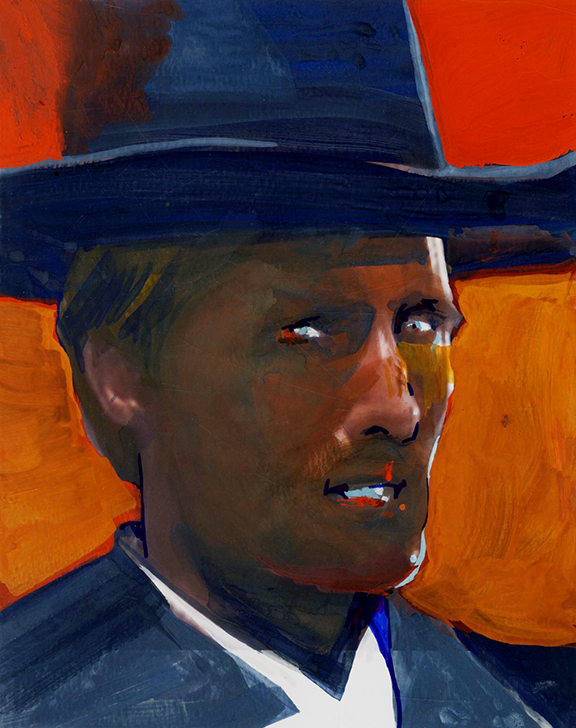
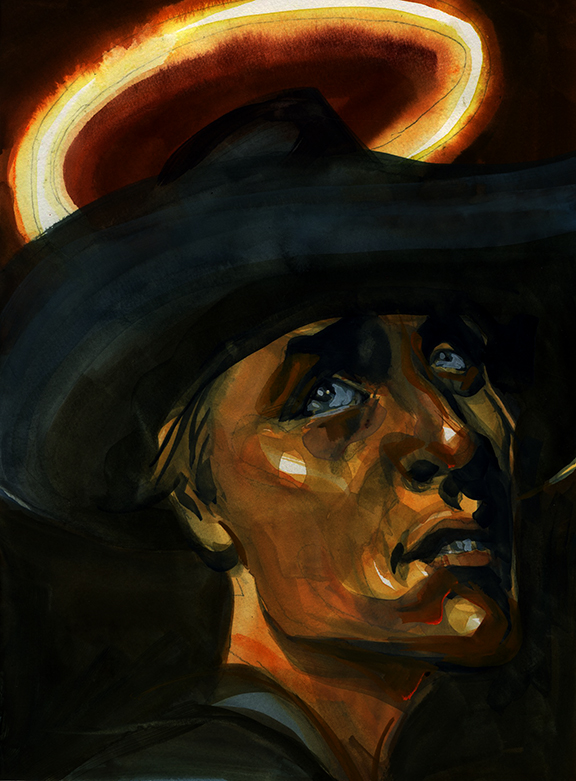




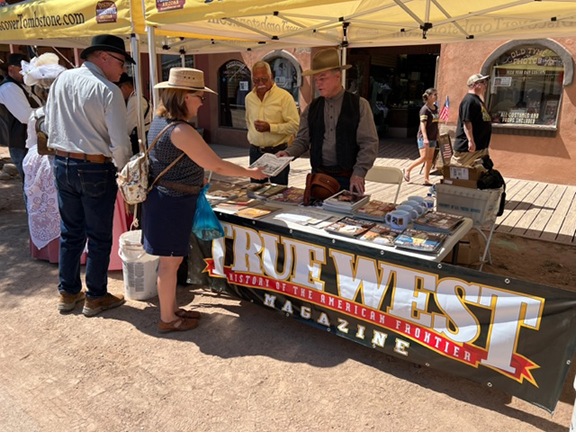
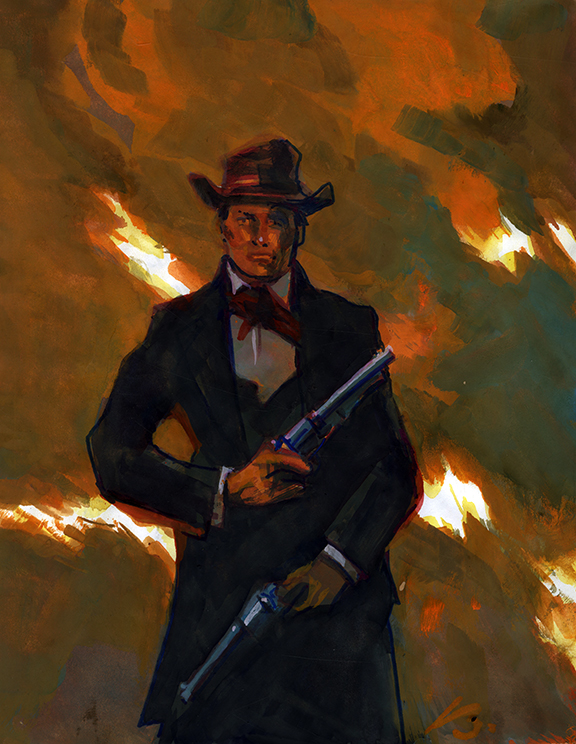





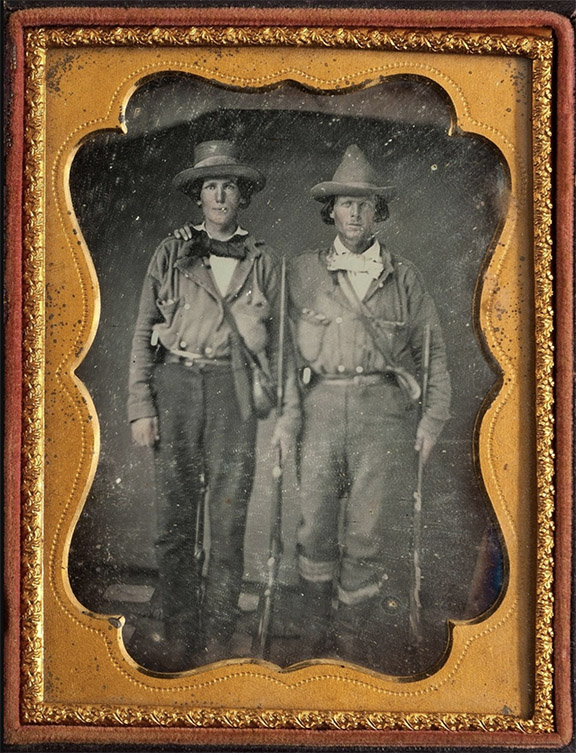


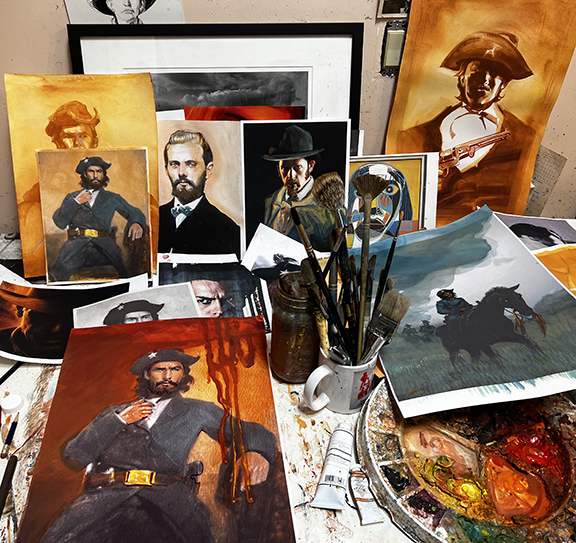







.jpg)





